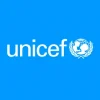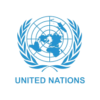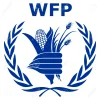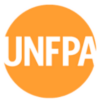National Consultancy (Economist) Job Opportunity at UNICEF
Job Overview
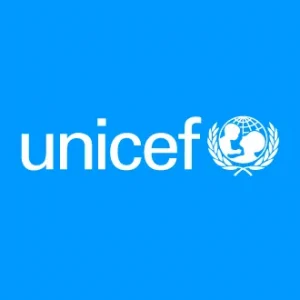
National Consultancy (Economist) Job Opportunity at UNICEF
National Consultancy (Economist) Job Opportunity at UNICEF
UNICEF Tanzania – UNICEF
Dar es Salaam
Job no: 572244:Contract type: Consultant
Duty Station: Dar-es-Salaam
Level: Consultancy
Location: United Republic of Tanzania
Categories: Nutrition
UNICEF works in some of the world’s toughest places, to reach the world’s most disadvantaged children. To save their lives. To defend their rights. To help them fulfill their potential.
Across 190 countries and territories, we work for every child, everywhere, every day, to build a better world for everyone.
And we never give up.
For every child, support
Tanzania strives to achieve economic transformation and human development through industrialization in its vision by 2025. Although nutrition is a human right and good nutrition is the foundation for healthy individuals and human development, high levels of malnutrition, including stunting as high as 30%, micronutrient deficiencies, and the emerging burden of overweight and obesity are significant obstacles to achieving the country’s human development goals. For instance, childhood stunting is very high in 1 out of 2 regions of the United Republic of Tanzania; this represents close to 3 million children less than five years old. Stunting is more prevalent in younger children (especially children 1-2 years, 36.3%, and children 2-3 years, 38.7%) and affects more children in rural areas (33.4%) than in urban areas (20.5%). In addition to stunting, children are also affected by underweight (12%) and wasting (3.3%). Four percent of children under the age of five are overweight. Low complementary feeding practices prevail in the country since only 8% of children 6-23 months are fed a minimum acceptable diet, enabling them to grow and survive. Anemia remains a challenge when it comes to women and adolescent girls and boys nutrition in Tanzania: The overall prevalence of anemia among women aged 15 to 49 measured by venous blood is 37%, and the percentage of women with any anemia is higher in urban areas (40%) than in rural areas (36%). Tanzania has met a few SDG 2 nutrition targets (exclusive breastfeeding and wasting) but is not on track to meet the SDG target on childhood stunting.
The country has made significant efforts to address malnutrition:
The Nutrition Compact, an accountability and transparency tool, was established and signed for the first time in December 2017 between the Minister of State – PORALG and Regional Commissioners on behalf of the former Vice President, who is currently the President of the United Republic of Tanzania, Her Excellency, Dr. Samia Suluhu Hassan.
Tanzania Mainland is implementing the 2021/22-2025/26 National Multisectoral Nutrition Action Plan (NMNAP) under the coordination of the Prime Minister’s Office at the national level.
Councils are gradually increasing the resource allocation for nutrition. Nationally, Local Government Authorities (LGAs) nutrition budget allocation per child under five for priority interventions increased from an average of TZS 1,034 (USD 0.52) in FY 2021/22 to TZS 1331.33 in FY 2023/24. While this is good progress, nutrition is largely unfunded in Tanzania.
Three of the six resolutions of the 9th Joint Multisectoral Nutrition Review (25th and 26th October 2023) – the Prime Minister-led annual review of the progress of the NMNAP – were about public financing for nutrition as an important milestone for the country is the Mid-Term Review of the NMNAP.
At the 2022 Tanzania Demographic Health Survey (TDHS) launch on 28th October 2023, Her Excellency, the President of the United Republic of Tanzania, emphasized the need to accelerate progress in childhood nutrition in the country. In the last few years, development partners substantially supported the implementation of NMNAP I, which led to a rethink about funding for the implementation of NMNAP II. Therefore, several initiatives have taken place or are ongoing: An NMNAP II Resource Mobilization Strategy was developed to steer towards innovative public and private sector funding mechanisms. Currently, the World Food Programme (WFP) supports the Tanzania Food and Nutrition Center (TFNC) in undertaking the cost of a hunger study in Tanzania with UNICEF’s support, contributing to strategic advocacy efforts on the economic losses incurred due to child malnutrition.
An important area that still demands to be studied in Tanzania is what it takes, financially speaking, to accelerate the reduction of stunting (investment by scenario of implementation) and the return on investment for Tanzania. UNICEF and the Ministry of Health believe this will help fill a strategic information gap in Tanzania and help the Government and partners (donors, private sector, international financial institutions, United Nations) understand the level of investment required for accelerating the reduction of stunting in Tanzania for the years to come, as a contribution to enhancing human capital.
How can you make a difference?
The Consultant will be required to support the lead technical consultant in facilitating stakeholders’ coordination and collecting data to inform the development of a nutrition investment case for three packages of interventions and estimate the expected return on investment.
The consultant will report to the Chief, Nutrition and the designated activity focal person in the Ministry of Health and work closely with the lead consultant. Specifically, she/he will be expected to:
Support the formation of the core group overseeing the nutrition investment case with stakeholders from the MoH, Ministry of Finances, and other relevant stakeholders.
Facilitate core group meetings and communications.
Collect quantitative data that will be used to develop three nutrition intervention packages.
Conduct key informant interviews to incorporate their perspectives in the assignment as needed.
Expected outputs/Deliverables.
WORK ASSIGNMENT, DELIVERABLES, TIME FRAME AND PAYMENT:
WORK ASSIGNMNET DELIVERABLES TIME FRAME
PAYMENT IN %
Inception phase:
Report for stakeholder consultations at the project inception meeting
TORs for the core group, draft road map
10 July 2024 10%
Quantitative data collection:
Database summarising the primary and secondary quantitative data needed for the costing and investment case analysis
Minutes of the core group
7th August 2024 45%
Stakeholders Consultations: 5. Report outlining the findings from the key informant interviews. 25 September 2024 45%
TOTAL 3.5 months 100%
PAYMENT SCHEDULE:
UNICEF reserves the right to withhold all or portion of payment if performance is unsatisfactory, if work/output is incomplete, not delivered or for failure to meet deadlines.
ASSESSMENT / SELECTION PROCESS AND METHODS:
Evaluations: The applicant should submit both technical and financial proposals which clearly stipulate how the work will be conducted. The Financial Proposal should include all costs of this assignment including fee, travel costs, accommodation as UNICEF will not pay any DSA.
Proposals will be both technically and financially evaluated. The technical part will carry a weight of 75%, in which the consultant will put clear his/her technical approach to ensure quality attainment of each deliverable and the consultancy in totality. The financial part will take 25% showing the proposed budget breakdown of consultancy cost for each deliverable (fees, travel and accommodation) and eventual total consultancy cost.
LOCATION, DURATION & LOGISTIC:
The consultant will work remotely with four field mission to Dodoma. The validity of the contract will be for 3.5 months.
METHODOLOGY:
The assignment is anticipated to be conducted in Tanzania, and four visits to Dodoma will be undertaken. The consultant will be expected to:
Support the establishment of the core group and its functioning in line with the nutrition investment case road map.
Support the planning and undertaking of the inception meeting.
Collect quantitative primary data and compile quantitative secondary data from relevant sources to inform the costing of the nutrition intervention packages and return on investment analysis.
Conduct semi-structured interviews to gather stakeholders’ perspectives at the national and sub-national levels to incorporate their views in the analysis.
To qualify as an advocate for every child you will have…
Advanced degree in public health, health economics, nutrition or a closely related field
At least 5 years of professional experience working on research, with a focus on nutrition and health economics.
Experience collecting quantitative and qualitative data to inform programme evaluation, ideally with a focus on nutrition.
Familiarity with the developing countries government and environment, with a focus on Tanzania
Familiar with statistical approaches to evaluating the impacts of nutrition interventions (based on Relative Risk or Odds Ratio)
Experience in development and evaluation of nutrition interventions including estimates of cost and coverage.
Well versed in Excel
Excellent communication, coordination, and facilitation skills
Fluency in written and spoken English is required.
For every Child, you demonstrate…
UNICEF’s values of Care, Respect, Integrity, Trust, Accountability, and Sustainability (CRITAS).
UNICEF is here to serve the world’s most disadvantaged children and our global workforce must reflect the diversity of those children. The UNICEF family is committed to include everyone, irrespective of their race/ethnicity, age, disability, gender identity, sexual orientation, religion, nationality, socio-economic background, or any other personal characteristic.
UNICEF offers reasonable accommodation for consultants/individual contractors with disabilities. This may include, for example, accessible software, travel assistance for missions or personal attendants. We encourage you to disclose your disability during your application in case you need reasonable accommodation during the selection process and afterwards in your assignment.
UNICEF has a zero-tolerance policy on conduct that is incompatible with the aims and objectives of the United Nations and UNICEF, including sexual exploitation and abuse, sexual harassment, abuse of authority and discrimination. UNICEF also adheres to strict child safeguarding principles. All selected candidates will be expected to adhere to these standards and principles and will therefore undergo rigorous reference and background checks. Background checks will include the verification of academic credential(s) and employment history. Selected candidates may be required to provide additional information to conduct a background check.
Remarks:
Only shortlisted candidates will be contacted and advance to the next stage of the selection process.
Individuals engaged under a consultancy or individual contract will not be considered “staff members” under the Staff Regulations and Rules of the United Nations and UNICEF’s policies and procedures, and will not be entitled to benefits provided therein (such as leave entitlements and medical insurance coverage). Their conditions of service will be governed by their contract and the General Conditions of Contracts for the Services of Consultants and Individual Contractors. Consultants and individual contractors are responsible for determining their tax liabilities and for the payment of any taxes and/or duties, in accordance with local or other applicable laws.
The selected candidate is solely responsible to ensure that the visa (applicable) and health insurance required to perform the duties of the contract are valid for the entire period of the contract. Selected candidates are subject to confirmation of fully-vaccinated status against SARS-CoV-2 (Covid-19) with a World Health Organization (WHO)-endorsed vaccine, which must be met prior to taking up the assignment. It does not apply to consultants who will work remotely and are not expected to work on or visit UNICEF premises, programme delivery locations or directly interact with communities UNICEF works with, nor to travel to perform functions for UNICEF for the duration of their consultancy contracts.
Advertised: 23 May 2024 E. Africa Standard Time
Deadline: 06 Jun 2024 E. Africa Standard Time


